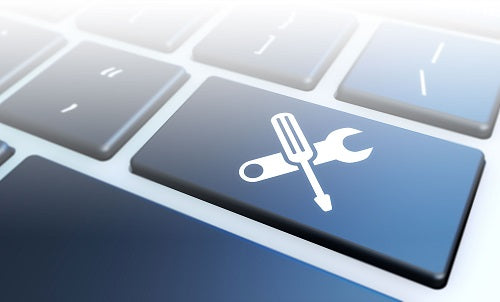-
Microsoft Windows Server 2022 Device CAL
Regular price From €29,95Sale price From €29,95 Regular priceUnit price perMicrosoft Windows Server 2022 Device CAL With the Microsoft Windows Server 2022 Device CAL license key, you secure a powerful and stable server environment tailored specifically...
Server & Client
What are servers and clients?
Servers and clients are fundamental components in network architecture. A server is a powerful computer that provides resources, data, or services, while clients are the devices that access these resources. This relationship enables efficient sharing and processing of information. In many networks, multiple clients work simultaneously with one or more servers, facilitating collaboration and data exchange.
What types of servers are there?
There are different types of servers, each fulfilling specific tasks. Web servers host websites and deliver content to clients, while database servers store and manage data. Application servers run specific applications and provide them to clients. Additionally, there are mail servers that manage emails, and file servers that enable access to files. The choice of the right server type depends on the requirements of your network.
How do servers and clients communicate with each other?
Communication between servers and clients usually takes place via a network protocol, such as HTTP for web requests or FTP for file transfers. Clients send requests to the server, which processes them and sends back the corresponding responses. This interaction can occur in real time, enabling fast and efficient data transfer. The use of protocols ensures that communication is standardized and reliable.
What are the advantages of server-client architectures?
Server-client architectures offer numerous advantages, including centralized data management and enhanced security. By storing data centrally on servers, it can be more easily backed up and managed. Furthermore, separating server and client allows better scalability, as additional clients can be added without major changes to the server. This architecture also promotes efficiency, as servers consolidate resources and relieve clients.
- Centralized data management for easier backups
- Scalability by adding new clients
- Improved security through centralized access control
How do I choose the right server for my needs?
When choosing a server, you should consider your specific requirements. Think about what type of applications or services you want to provide and how many clients will access it. The required performance, storage space, and security needs also play a crucial role. It can be helpful to consult a professional to find the best solution for your business.
How can I optimize my server's performance?
To optimize your server's performance, you should regularly perform maintenance tasks such as updating software and checking hardware components. Monitoring server load can also help identify bottlenecks early. Additionally, adding extra RAM or using faster hard drives can improve response times. A well-planned server architecture also contributes to performance enhancement.
What security measures are important for servers?
The security of servers is crucial to prevent data loss and unauthorized access. Important measures include implementing firewalls, regular software updates, and using strong passwords. Additionally, you should conduct regular security audits and create backups of your data. A comprehensive security strategy protects not only the server but also the information stored on it.

















